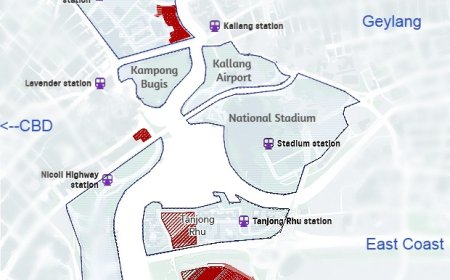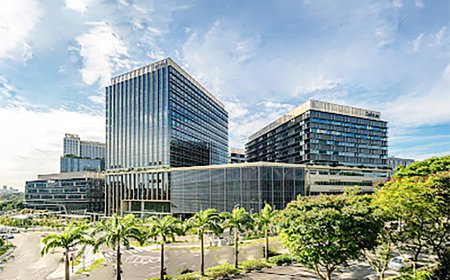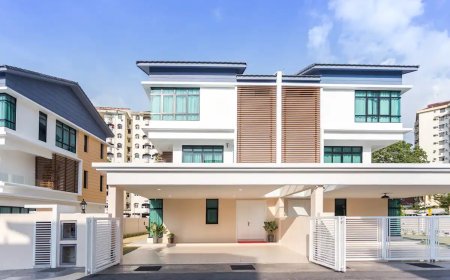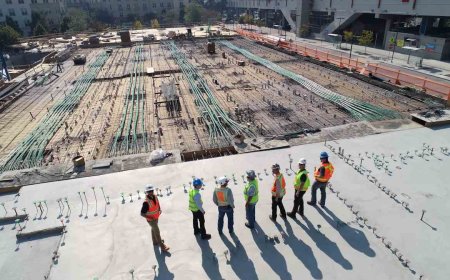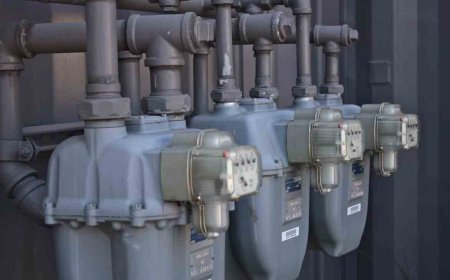Refinance a Home Loan in Singapore: A Complete Guide
Explore how refinancing a mortgage in Singapore can help reduce your loan costs, shorten your repayment period, or unlock home equity. A complete professional guide with strategic insights for smart homeowners.

Refinancing a mortgage in Singapore can be a strategic financial decision for homeowners seeking to reduce monthly instalments, lower interest costs, adjust their loan tenure, or unlock the equity built in their property. This process involves replacing your current home loan with a new one, often from a different financial institution.
While it may sound straightforward, successful refinancing requires careful planning, clear financial goals, and a good understanding of market conditions and associated costs.
What Is Mortgage Refinancing?
Mortgage refinancing is the process of switching your current housing loan to a new one with different terms. Most commonly, this means replacing an existing mortgage from one bank with a new mortgage from another. It can also include changing from an HDB concessionary loan to a private bank loan. However, note that refinancing from a bank loan back to an HDB loan is not allowed under current regulations.
Once approved, the new loan will be used to repay your original mortgage, and your new repayment obligations will be based on the terms of the refinanced loan.
Key Benefits of Refinancing
Lower Monthly Instalments
One of the most common reasons homeowners consider refinancing is to reduce monthly repayments. This can be achieved by securing a lower interest rate, which may significantly lower the cost of borrowing over time.
Faster Loan Repayment
Refinancing to a shorter loan tenure allows borrowers to pay off their home loan more quickly. Although this usually results in higher monthly payments, it can lead to substantial interest savings over the loan’s lifespan.
Extended Loan Term
If your goal is to reduce financial pressure, refinancing to a longer tenure can help lower your monthly repayment amount. However, be aware that this could lead to higher overall interest payments. For HDB flats, the maximum loan term after refinancing is 25 years minus the years already elapsed since your original loan was disbursed. For private properties, the maximum is typically 30 years under similar conditions.
Access to Home Equity
Owners of private residential properties can tap into their home’s equity through cash-out refinancing. This option allows you to borrow against the market value of your property, potentially offering access to substantial funds for other financial needs. Note that this feature is not available for HDB flats.
Reduced Insurance Premiums
Refinancing may affect your existing mortgage insurance. A reduction in loan quantum or tenure may lead to a lower premium, particularly under the Home Protection Scheme (HPS). If you are covered by Mortgage Reducing Term Assurance (MRTA), ensure your policy is still valid under the new loan arrangement.
Debt Consolidation
Refinancing can also be a practical method of consolidating other high-interest debts into one lower-interest home loan. This streamlines monthly repayments and may reduce your overall interest expenses, subject to your credit standing and total debt service ratio.
When Should You Consider Refinancing?
The ideal time to refinance is when prevailing mortgage rates are lower than those in your existing loan agreement. Other good reasons include changes in financial circumstances, adjustments in long-term goals, or improvements in your credit profile.
However, refinancing also comes with costs such as legal, administrative, and valuation fees. Therefore, it is essential to determine whether the long-term savings outweigh the upfront expenses.
Potential Costs of Refinancing
Refinancing fees may vary based on your current loan provider and the bank you are switching to. Common fees include:
-
Legal fees
-
Valuation charges
-
Prepayment penalties
-
Cancellation charges
-
Conversion fees
-
Subsidy clawbacks
Always review your original mortgage agreement to understand which of these apply.
Finding the Best Refinance Rates
To ensure value for money, it is crucial to compare mortgage offers from multiple financial institutions. Consider the following steps:
-
Request loan quotes from at least three banks or lenders
-
Use an online refinance calculator to assess monthly savings
-
Estimate your break-even point (when your savings exceed the refinancing costs)
-
Read the fine print regarding lock-in periods and applicable fees
If you plan to move house in the next few years, refinancing may not be cost-effective, as it typically takes time to recoup the upfront costs.
Step-by-Step Guide to Refinancing a Home Loan in Singapore
Step 1: Define Your Objective
Start by identifying your refinancing goal. Whether it's to lower repayments, shorten the tenure, or access equity, having a clear objective helps in selecting the most appropriate package.
Step 2: Research the Market
Visit reputable comparison platforms to explore current refinance offers from various banks. Take note of interest rates, lock-in periods, fees, and eligibility criteria.
Step 3: Select a Lender
Once you have shortlisted a few lenders, compare their offers thoroughly. Evaluate not only the interest rate but also hidden costs and service quality.
Step 4: Calculate Your Total Costs
Make a detailed estimate of the expenses involved, including legal fees, administrative charges, and valuation costs. This helps in preparing your refinancing budget.
Step 5: Submit Your Application
Complete the application process with the lender of your choice. You will need to submit documents such as:
-
NRIC or passport
-
Latest CPF contribution history
-
Recent payslips and income tax statements
-
Current loan statements
-
Outstanding mortgage balance
After submission, the bank will evaluate your financial profile and issue the approval letter if you meet the criteria.
Step 6: Complete the Legal Process
Once approved, you will need to appoint a lawyer to facilitate the legal process, including disbursement and mortgage registration. After completion, you will begin repayments under the new loan agreement.
Final Thoughts
Refinancing your home loan in Singapore is a significant financial decision that can offer substantial long-term benefits if done strategically. It is essential to assess your goals, understand the costs involved, and consult trusted financial institutions to secure the most competitive terms. Whether you aim to lower your monthly payments, repay your loan faster, or gain access to equity, a well-executed refinancing strategy can strengthen your financial position.
Algene Toh
Disclaimer: The information presented on BSR2.com is intended for general informational purposes only. It does not constitute legal, financial, investment, or real estate advice and should not be relied upon as such. While every effort has been made to ensure the accuracy, reliability, and completeness of the content at the time of publication, all data is derived from publicly available sources and may be subject to change without notice. BSR2.com makes no representations or warranties of any kind, express or implied, regarding the suitability, timeliness, or accuracy of the information provided for any specific purpose. Users are strongly encouraged to seek independent advice from qualified professionals before making any decisions based on the content found on this website. BSR2.com shall not be held liable for any loss, damage, or consequence, whether direct or indirect, arising from the use of or reliance on the information provided. The content is intended as a general guide and does not take into account individual circumstances.
What's Your Reaction?
 Like
0
Like
0
 Dislike
0
Dislike
0
 Love
0
Love
0
 Funny
0
Funny
0
 Angry
0
Angry
0
 Sad
0
Sad
0
 Wow
0
Wow
0

